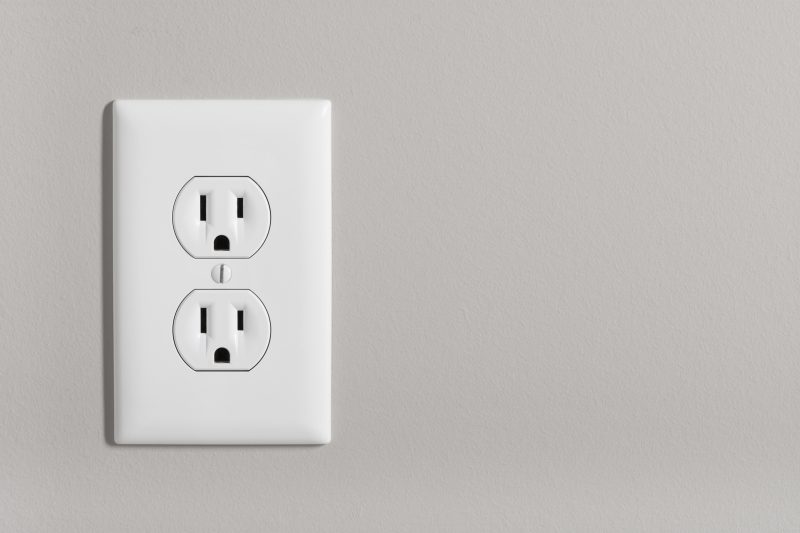What Can An Electrician Do For You?
Electrical services range depending on the type of electrician you decide to hire. An electrician not only brings electrical power to your home or commercial building but they also handle any electric repairs or other installation work needed. A good electrician has a lot of tasks and responsibilities. Additionally, you’ll want to hire an electrician that is licensed and insured, typically a state requirement. Education and training is also a requirement for most electricians in the Gloucester and Virginia Beach area. Learn about the expectations you may need to have when looking for the right electrician.
- Repair Work, Installation, and Maintenance
You may find that you don’t need an electrician until an electrical property in your home stops working or malfunctions. An electrician is here to help you with all electrical components in your home or property so that you can remain safe and have things running smoothly as soon as possible. An expert electric technician can work with circuit boards, can lighting, ceiling fans, all lighting systems, generators, GFCI outlet installation, landscape lights, lighting retrofit, power upgrades, remodeling projects, security lighting, wiring installation, wiring repairs, and of course provide an electrical diagnosis of the problem.
- Remodeling Work or New Construction
If you are looking to remodel your home, you may want to consult an electrician as they can be able to guide you with lighting systems, any maintenance and repairs, and estimates! When it comes to new construction, you’ll want to ensure all electrical parts and features of your home are full-functioning. An electrician such as Asbury Electric can help you install or repair generators, power and control systems, and temporary power as well.
- Emergency Electrical Support
Ensure that the electrician you are interested in provides 24-hour service for any electrical emergency needs. If you are unsure if your electric issue constitutes an emergency, you can contact an electrician such as Asbury Electric for a full consultation. Some warning signs of a potential emergency include hot or sparking outlets and fixtures, light fixtures that malfunction or cause a short, appliance malfunction due to electrical issues, live wires, overloaded sockets and circuits, faulty connections, electrical failures, water damage, and power surges. If you experience any of these signs, do not ignore them and contact your local electrician for help and guidance.

Why You Should Get a Troubleshooting for Your Electrical Troubles
When electrical problems present themselves in your Naperville home, you want to get those issues resolved quickly and dependably, lest you run the risk of fires or other dangers. And to be sure you enjoy a dependable and timely repair, get an electrical troubleshooting at the first sign of issues.
Save Time
If you are dealing with electrical issues but you dont know whatas caused them, you all find the fastest way to get a repair handled will be to start with a troubleshooting. Getting professionals to troubleshoot will figure out the exact cause of your troubles, allowing you to enjoy a fast, precise repair.
Save Money
Should your electrician try a series of repairs that seem as though they could remedy your electrical issues as he blindly tries to understand the problem, you could wind up spending a small fortune. But with an initial troubleshooting, you can save the expense and get right to the issue.
Get Guaranteed Results
At the end of the day, you want your electrical problems fixed, so time and money might not be your most compelling reasons to get a troubleshooting. But you should still get a troubleshooting for the sake of having those issues resolved since a troubleshooting will help you enjoy guaranteed results.

Hiring an Electrical Contractor
As with hiring any profession choosing the right electrician is a process. You are paying the money so you have to be sure that the person will perform the task up to the codes of the industry. Referrals are a good place to start but should not be the end-all and be-all. This especially true if your project is not quite the same as your neighbor’s. The internet is another place to find names for your list as is the local building supply places. They will have a list of people to who they sell equipment. They will usually recommend tradespeople who pay their bills promptly and have a good reputation in the industry.
Here is a checklist of what to ask:
- How long have you been an electrician?
- For what kind of electrical work are you presently licensed?
- Are you and your workers insured?
- What is you personal specialty?
- Will you subcontract the work or do it yourself?
- How will you do this project?
- When can you start?
- How long will it take?
- Will you provide the clean-up?
- Will you take out the permits required?
- May I get a list of references?
- A reputable contractor will not take offense to any of these requests.
Now is the time to get a sense of how you feel about the contractor. Because when it all comes down to it, you are that person’s partner for the duration of the project and until you are satisfied that the job has been completed. Therefore, you want to feel that you can have a good working relationship with this person.
You can fill in the rest of the blanks with the references that the contractor gives you. By having a short conversation with a former client of the contractor you can get an idea how he or she works. For example, does the electrician work for a few hours and then take off for the rest of the day, not to return until a couple of days later? Or did he or she come for a whole day and then not come back for a week? In addition, a reputable electrician does not expect to get paid until the job has been completed. Therefore, do not pay in advance regardless of the situation. Paid workers find it hard to return to the job.

5 HABITS TO HELP ENSURE ELECTRICAL SAFETY IN THE HOME
Princeton Electrical Safety InspectionElectricity, while life-changing, can also be extremely dangerous when we fail to remember how powerful it is and therefore fail to safely maintain it in our homes. When we do not take the proper precautions to ensure our electrical safety, it can result in significant damage by causing fires, creating electrical shock, or damaging our devices, costing us thousands of dollars, our sense of safety, or even our lives. Here are 5 habits to help ensure electrical safety in your home.
1. Be aware of any leaks.
Unfortunately, standing water leaks from the wall, plumbing, or the roof can create a serious electrical hazard. This is because water serves as a conductor of electricity. Keep an eye on things in your home such as the drains underneath your sinks or your water heater. It is even more important to stay on top of this during times of inclement weather, such as heavy rain and strong winds, as these conditions can contribute to an increase in water.
2. Regularly check your cords.
When we set up our TVs and other electronic devices, rarely do we move them again for a long period of time. Be sure to check on any appliances and devices that have been plugged into the same outlet for a prolonged period of time. Left in the same position, these cords could easily be permanently bent or frayed, which may eventually lead to a fire. If you discover cords in these conditions be sure to call a qualified service technician as soon as possible.
3. Child-proof if relevant.
Those of us who have children are aware of the disproportionate amount of trouble that they can get into when not constantly and closely monitored. Things that may be perfectly safe for us may be extremely dangerous to children. Full of curiosity with little hesitation, a child can quickly pull on cords or stick fingers into uncovered outlets. If you should ever have children in the home be sure to cover any unused outlets and place cords out of reach of little hands.
4. Replace any sub-sufficient equipment.
It may be extremely annoying or inconvenient when any of our equipment fails to work properly. But when we have a flickering light or a breaker that keeps being tripped, it can spell more than just inconvenience. While we can tighten loose bulbs and plug-in cords that are halfway out of their outlet, it is important that we have these appliances checked out by a professional.
5. Get regular electrical safety inspections.
Although it seems quite simple to oversee the electronic safety of your home, the smallest things can result in the worst situations. We may be so used to our surroundings and may have such a casual attitude towards our electronic devices, which we easily fail to miss something important. That’s why it is so important to get regular electrical safety inspections by a qualified professional.
5 SAFETY TIPS TO PROTECT YOUR OLDER HOME FROM ELECTRICAL FIRES
One of the most important things for every owner of an older home is electrical safety to prevent house fires.
The first thing to realize, if you have an older home, is that your modern family’s demand for power may put a load on the electrical system that it cannot handle. Your big side-by-side refrigerator, washing machine and clothes dryer, storage freezer, HVAC system, modern range and oven, microwave, dishwasher, and other appliances have powerful motors that tax old electrical systems.
Therefore, protecting your home from electrical fires is a must. Here are some suggestions from our Albuquerque electricians at Energized Electric.
1. Upgrade your electrical panel
You never want to let the electrical panel get outdated. The panel is there to protect your home from house fires. The breakers within the panel will switch the power to a circuit off if the wires along the circuit get hot from an overload. The panel needs to be upgraded about every five to seven years so that the components within can keep up with the modern demand of your household.
2. Install more outlets
Older homes don’t have the outlets necessary to run a modern household. If you find that you need extension cords all the time, it is time to install more outlets in your home. Extension cords only multiply the load problem that an outdated electrical system already can’t handle.
3. Upgrade the feeder lines
The feeder lines are the lines that connect to your home from the utility poles nearby. Older houses often have two-wire feed lines instead of three-wire. These lines are not capable of supporting 240-volt appliances. The feeder line should be upgraded when you have the electrical panel upgraded or you may wind up with a house fire.
4. Install surge protection
Surge protection is installed directly into the main electrical panel of your home. This equipment protects all your appliances, heavy HVAC system, lighting, wiring circuits, and other electrical components during a power surge. Power strip surge protectors are not enough.
5. Install a dedicated circuit to heavy appliances
Use a freezer in the garage or utility room? An electrician should install a dedicated circuit if you use heavy appliances that aren’t normal for an older home. Don’t overload the outlets in these rooms that aren’t meant for an additional heavy appliance.